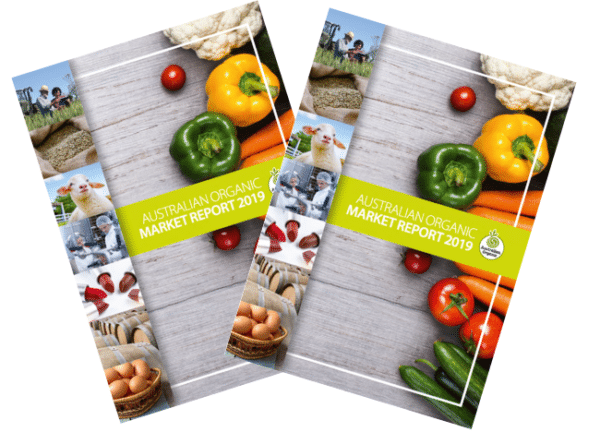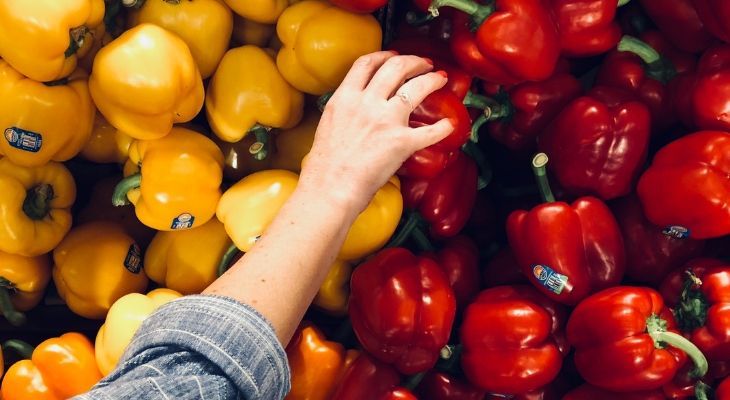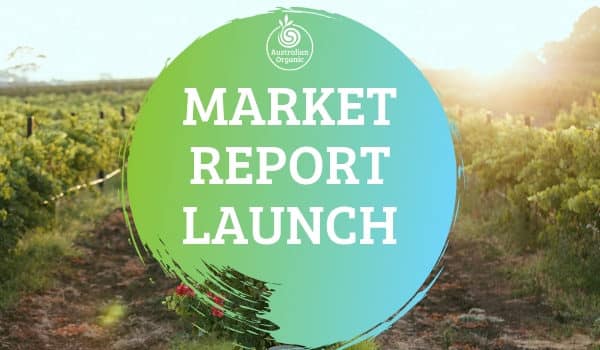Awareness Around Organics at an All-Time High as Australians Seek out Authentic Products
Australian demand for certified organic products is skyrocketing with $1.93 billion dollars generated in domestic sales for 2018 across a wide range of products. The figure is up $256 million from domestic sales of $1.67 billion for 2017 with the total Australian organic industry now worth $2.6 billion and growing year on year.
Given such demand, Australians are now wanting greater clarity and information when it comes to choosing authentically organic products. Some 55 per cent of Australian organic buyers now say they look for a certification logo on labels to check if a product is actually organic according to new research released by Australian Organic, the organic industry’s leading body.
The newly released annual Australian Organic Market Report 2019, which covers the 2018 calendar year, also found 65 per cent of Australian households are now buying some sort of organic product or produce yearly – an annual rise of five per cent. Vegetables, beef, non-alcoholic beverages, fruit, ready to eat foods, nuts and cosmetics/ health products are the most in demand organic items.
The report contains consumer insights from 1,025 Australians, who were the primary food shopper in their household compiled by market research group Mobium Group, plus industry insights conducted by the University of New England.
Increased awareness regarding chemicals and the environment were identified as major purchase drivers, with consumers saying when it comes to organic food the perceived main benefits upon buying are that they are chemical-free (80 per cent), environmentally friendly (71 per cent – up from 65 per cent since 2016) and additive-free (65 per cent).
Those who do buy organic, are also doing so with more regularity and in more categories. Nearly half of current organic purchasers say that they have increased the allocation of their household food spending on organics over the past year.
Australian Organic General Manager Niki Ford said the increase in domestic sales is reflective of the high recognition factor of the industry’s distinctive bud logo on products. Now recognized by more than 50 per cent of consumers, the Bud logo provides consumers with the surety they can trust the product is truly organic, which is something the industry has worked hard to convey to consumers.

Niki Ford, General Manager, Australian Organic
“Unfortunately, there’s been a raft of non-certified products in the market purporting to be organic when they’re not,” she said. “Given this, the amount of people checking for a certification logo on the label to check if a product is organic is now significantly higher compared to the recognition factor of just 34 per cent in 2012. More than six in ten shoppers agree that an organic certification mark would increase their trust in organic products, with over a quarter (29 per cent) saying that an organic certification mark would have a strong level of influence over their organic purchase decisions.”
Ford said it was apparent the rapidly growing domestic market needs to be regulated, given that the Australian export market already has regulations in place. “It’s important that Australian consumers can trust that their dollars are being spent on products that have been rigorously tested to ensure they meet the industry standards and not fooled by clever marketing or simply a brand name containing the word ‘organic’. Australian Organic has an ongoing dialogue with the industry regulator on this topic and is currently petitioning for a stronger approach to domestic regulation.”

2019 Australian Organic Market Report
She added the Australian organic industry is constantly reacting to significant international trends, as consumer demands for convenience-based products increase. “In particular, the trends for ready-to-eat, packaged and alternative products are unmistakable in their presence on the retail shelf and demonstrated by the significant increase in certified processors since 2018,” she said. “The now diverse array of certified operators encompasses a rich blend of producers, processors, input manufacturers, handlers and retailers.”
Key Findings in 2019
- The overall number of households saying they have purchased at least one organic product in 2018 lifted to 65% from the previous year.
- More than half of organic buyers (55%) say that they look for a certification logo on the label to check if a product is organic.
- Over 90% of purchasers say that they shop for organics in supermarkets at some time.
- The benefits of products being chemical-free (80%), environmentally friendly (71%) and additive-free (65%) are viewed as the biggest advantages of organic food.
- Just under half of organic shoppers say they purchased organic due to increased awareness of the impact of food and cosmetics on their personal health.
- Over 7 in 10 shoppers use Google to search for information about organics.
Get your copy of the 2019 Australian Organic Market Report here.
About Australian Organic Ltd (AOL)
Australian Organic has played a major role in the organic industry since 1987. It is Australia’s member owned, not-for-profit, industry services group. Australian Organic is the leading industry body responsible for ensuring organic standards in Australia remain in the hands of the industry. Australian Organic established an organic certification scheme to independently verify that farmers and processors were producing in accord with those standards and introduced the leading organic certification ‘Bud’ logo. This symbol ensures the integrity of organic products in the marketplace for consumers. ACO, a separate legal entity to Australian Organic, is one of the certifying bodies licensed to use the ‘Bud’ logo.
Report and methodology
The Australian Organic Market Report is a highly respected annual publication commissioned by Australian Organic Ltd. which tracks trends in the Australian organic marketplace. The 2019 consumer insights research project was conducted by Mobium Group (Mobium) on behalf of Australian Organic Ltd. (AO). Data was collected via an online survey across 7 days in February 2019. The sample was randomly recruited through an ESOMAR accredited national research-only consumer panel. Target sample size of n=1,000 adult Australians who were primary grocery shoppers was specified. Age quotas were implemented to achieve a balanced mix of respondents – aged 18 -69 years. This year’s report incorporates independent research by University of New England, Mobium Group, Euromonitor and Ecovia.
-
Get your FREE ticket
- REGISTER FOR FREE

